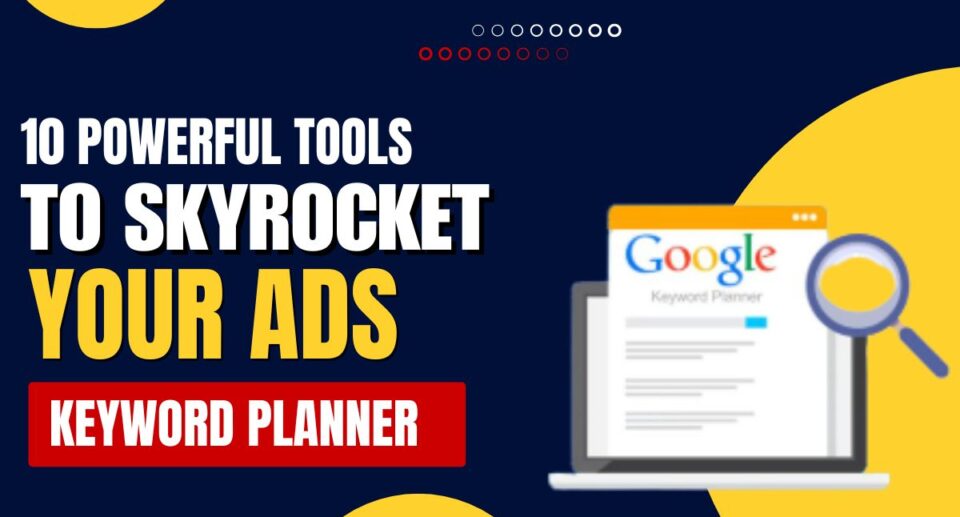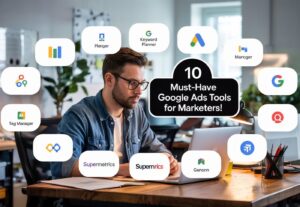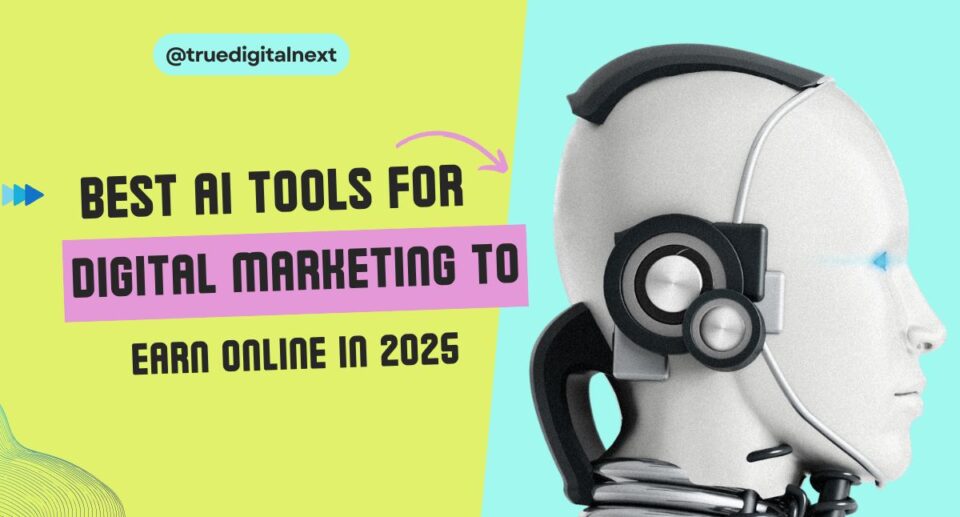Keyword Planner: 10 Powerful Tools to Skyrocket Your Ads

INTRODUCTION
Running Google Ads but not getting the results you expected? Whether you’re spending $50 or $5,000 a month, your success boils down to one thing—how smartly you manage your campaigns. And that’s where tools come in. From keyword discovery to competitor analysis and conversion tracking, the right tools can make all the difference.
One tool that deserves special mention? The Keyword Planner—a free yet powerful resource from Google that helps you discover high-intent keywords with volume, cost, and competition insights. But that’s just the start.
In this guide, we’ll explore 10 essential Google Ads tools that help marketers (even beginners!) maximize ROI, reduce ad waste, and simplify campaign management. Let’s get you the clicks that actually convert.
Why Google Ads Tools Matter
Managing Google Ads manually is like sailing blindfolded. Sure, you may eventually reach land, but it’ll be slow, expensive, and exhausting.
Analogy: Running ads without tools is like cooking without measuring cups—things can go wrong quickly.
Here’s why Google Ads tools are essential:
Help you research keywords your audience is actually searching for
Uncover competitor strategies
Identify ad copy that converts
Track your clicks, conversions, and user behavior
Optimize campaigns in real-time
Save time on tedious manual work
Stat: According to WordStream, the average small business wastes 25% of their ad spend due to poor targeting and optimization. The right tools eliminate that waste.
Top 10 Google Ads Tools Every Marketer Should Use
Let’s dive into the must-haves.
1. Google Keyword Planner
Purpose: Discover keywords, get volume and CPC estimates.
Why it’s essential: It’s your campaign foundation. Target the right keywords, and you’ll get better traffic, lower CPCs, and higher conversions.
Try it here: https://ads.google.com/home/tools/keyword-planner/ (insert as: Keyword Planner)
2. Google Ads Editor
Purpose: Bulk-edit campaigns offline.
Why it’s essential: Saves time when managing multiple ads or accounts. Make large-scale changes faster.
Ideal for agencies or anyone managing 100+ ads.
3. Google Analytics 4 (GA4)
Purpose: Track user behavior after the click.
Why it’s essential: Google Ads tells you who clicked. GA4 tells you what they did after they landed.
Pro Tip: Link GA4 with Google Ads to get conversion paths and deeper attribution data.
4. SEMrush
Purpose: Spy on competitor ads and keyword strategies.
Why it’s essential: Find gaps in your campaign. Discover what your competitors are bidding on and tailor your strategy accordingly.
Try it here: https://www.semrush.com
 5. Google Trends
5. Google Trends
Purpose: Understand seasonal or trending keyword opportunities.
Why it’s essential: Jump on rising topics and avoid declining trends.
Example: A spike in “AI resume builder” searches? Time your ads accordingly.
Try it here: https://trends.google.com
6. Ubersuggest
Purpose: Discover keyword ideas, volume, and SEO/PPC difficulty.
Why it’s essential: Great supplement to Keyword Planner—offers visual keyword grouping and suggestions.
Try it here: https://neilpatel.com/ubersuggest/
7. AdEspresso
Purpose: A/B test ad creatives and track performance.
Why it’s essential: Find out which image, headline, or CTA works best—before wasting your full budget.
Especially useful for Google Display Network and Meta Ads.
8. Optmyzr
Purpose: Automate and optimize PPC campaigns.
Why it’s essential: Saves hours every week by automating keyword management, bids, and scripts.
Try it here: https://www.optmyzr.com
9. Supermetrics
Purpose: Create stunning PPC reports in Google Sheets or Data Studio.
Why it’s essential: Make reporting painless. Pull live Google Ads data into one dashboard.
Try it here: https://supermetrics.com
10. Google Tag Manager
Purpose: Manage tracking pixels and conversion tags without dev help.
Why it’s essential: Get your analytics set up correctly without breaking your site.
Try it here: https://tagmanager.google.com/
Bonus Tool: ChatGPT
Purpose: Generate high-performing ad copy, landing page headlines, and CTAs.
Why it’s essential: Save hours brainstorming by using AI prompts to create ad variations fast.
How to Use These Tools in a Real Campaign
Example:
You’re running ads for a local dentist.
Keyword Planner → Discover high-converting terms like “emergency dental service near me”
Google Trends → Find when “toothache” spikes (hint: Sunday nights!)
SEMrush → See which clinics are bidding on Invisalign or cosmetic dentistry
AdEspresso → Test two ad versions: “Book in 5 Minutes” vs. “Pain-Free Dentistry Today”
GA4 → Track how many users booked vs. bounced
Result? Better ROI, lower CPC, more qualified leads.
Bonus Tips to Maximize ROI
1. Use Keyword Planner weekly to spot new trends or drop underperformers.
2. Regularly A/B test ad copy with tools like ChatGPT and AdEspresso.
3. Sync Google Ads with GA4 & GTM to avoid tracking gaps.
4. Set up automated rules in Optmyzr to pause low-CTR ads.
5. Use Supermetrics to create a weekly report with all your key metrics.
Remember: It’s not the budget, but how smartly you manage it.
FAQs
1. What is Google Keyword Planner used for?
It’s a free tool that helps you discover new keywords, see search volume, CPC estimates, and competition levels for Google Ads.
2. Can beginners use these Google Ads tools?
Absolutely. Tools like Keyword Planner, Tag Manager, and AdEspresso are designed to be user-friendly—even if you’re just starting.
3. Are these tools free to use?
Some tools like Keyword Planner, Google Trends, GA4, and Tag Manager are free. Others like SEMrush or Supermetrics have paid plans.
4. How often should I use Keyword Planner?
Ideally once a week or before launching new campaigns to stay aligned with search trends and user intent.
5. Which tool is best for Google Ads automation?
Optmyzr is a leading tool for campaign automation and intelligent rule-setting.
Conclusion
Google Ads is a powerful engine—but it needs the right fuel. These 10 must-have tools, especially Keyword Planner, help you go from trial-and-error to data-driven confidence.
No matter your budget or experience level, these tools:
 Save you time
Save you timeHelp you make better decisions
Boost conversions
Reduce wasted spend
Call to Action 1: Start with Keyword Planner to find high-ROI keywords today.
Call to Action 2: Bookmark this list and use it as your go-to toolkit before every campaign.
“Smart tools lead to smart campaigns. Make your budget work harder—not harder work for your budget.”



 5. Google Trends
5. Google Trends
 Save you time
Save you time



